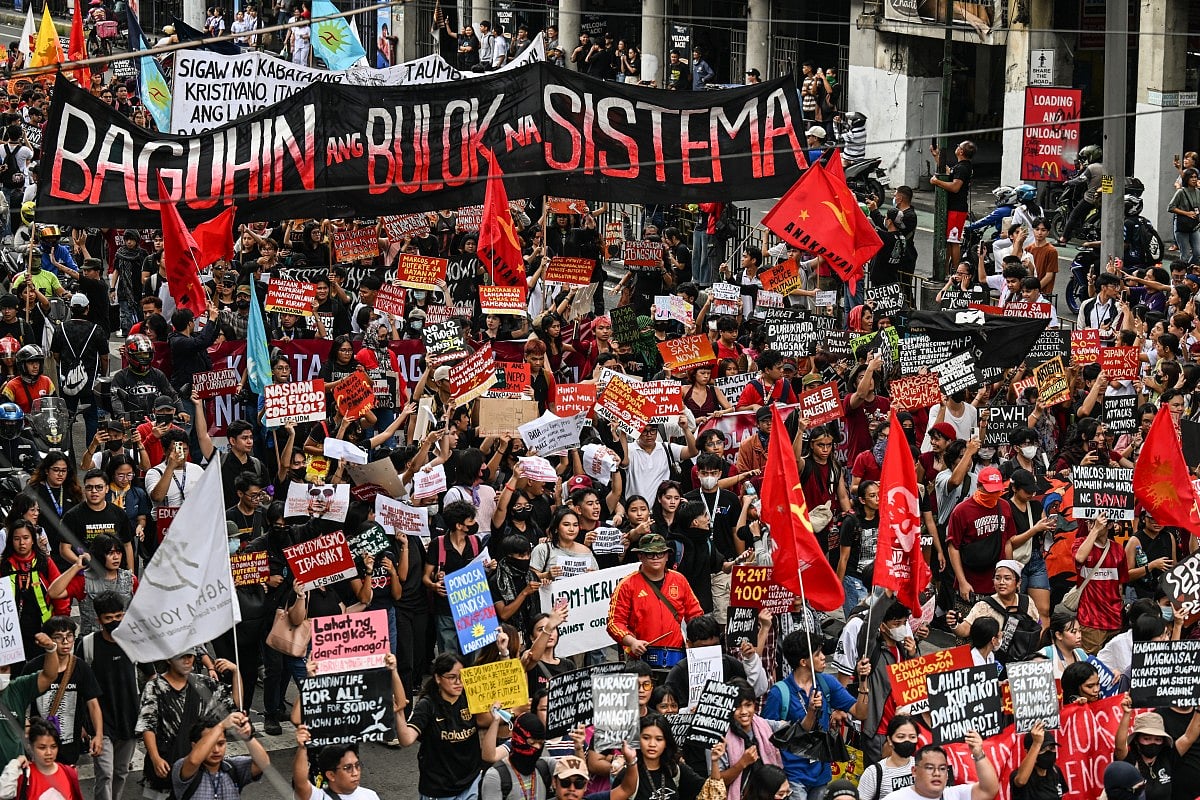81% of Filipinos say corruption worsened since Martial Law
Decades after the imposition of military rule, public outrage over corruption deepens

Manila: A bizarre and troubling paradox prevails here: those who dare to speak out against corruption are often the ones behind bars first.
It's a stark reminder of a justice system stuck in reverse.
Local media reported that "dozens" were still being held in detention days after the massive anti-corruption protests on September 21, 2025.
Instead of holding wrongdoers accountable, and despite the preponderance of evidence in terms of lives lost due to multi-billion kickbacks in subpar and "ghost" projects, the very voices demanding change are silenced, revealing a deeply flawed reality.
A recent poll showed that public frustration over corruption in the Philippines remains widespread more than 50 years after the declaration of Martial Law.
This was revealed in the latest Pahayag 2025 Third Quarter Survey by Publicus Asia.
The independent, noncommissioned nationwide study showed that 81% of Filipinos across all regions believe corruption has worsened since Martial Law was imposed 53 years ago.
Among those polled, a majority of respondents demand real accountability amid deepening corruption.
Despite repeated official promises to combat graft, the data reveals a persistent perception that corruption remains deeply embedded within the political system.
This follows recent research highlighting public dissatisfaction with Congress’s leadership and lack of accountability.
Public resignation
Alarmingly, 77% of registered voters did not participate in the September 21 anti-corruption rally, a sign analysts interpret as "public resignation" to graft being a permanent feature of Philippine governance.
When asked about responsibility for the ₱1 trillion in budget "realignments" from 2023 to 2025, 49% of respondents attributed blame jointly to President Ferdinand "Bong Bong" Marcos Jr., also known as "BBM", and the House of Representatives.
An additional 24% blamed the president alone, and 11% cited Congress, underscoring the view that corruption and fiscal misuse are systemic issues involving both executive and legislative branches.
Concrete action sought
The survey also found a growing demand for concrete actions: 41% want stolen public funds returned before any charges are filed, and 26% believe President Marcos should take a leave of absence if investigated by the Independent Commission for Infrastructure (ICI).
This nationwide survey was conducted from September 27 to 30, 2025, with 1,500 registered voters sampled from the PureSpectrum market research panel.
The margin of error is plus or minus three percentage points.
Martial Law
Martial Law in the Philippines refers to the period when the country's president assumes extraordinary powers, usually by declaring military control over the nation.
The most notable instance was on September 21, 1972, when then-President Ferdinand Marcos Sr, father of the sitting Philippine president, declared martial law through Proclamation No. 1081, citing threats from communist insurgencies and social unrest as justification.
This declaration granted Marcos extensive powers, including suspending the Constitution, controlling the judiciary, and restricting press freedoms.
Though the official Martial Law proclamation was lifted in 1981, Marcos maintained authoritarian control until he was ousted during the People Power Revolution in 1986.
Today, Martial Law remains a deeply significant and contentious part of Philippine history, symbolising state overreach, the fragility of democracy and justice stuck in reverse.
Sign up for the Daily Briefing
Get the latest news and updates straight to your inbox
Network Links
GN StoreDownload our app
© Al Nisr Publishing LLC 2026. All rights reserved.